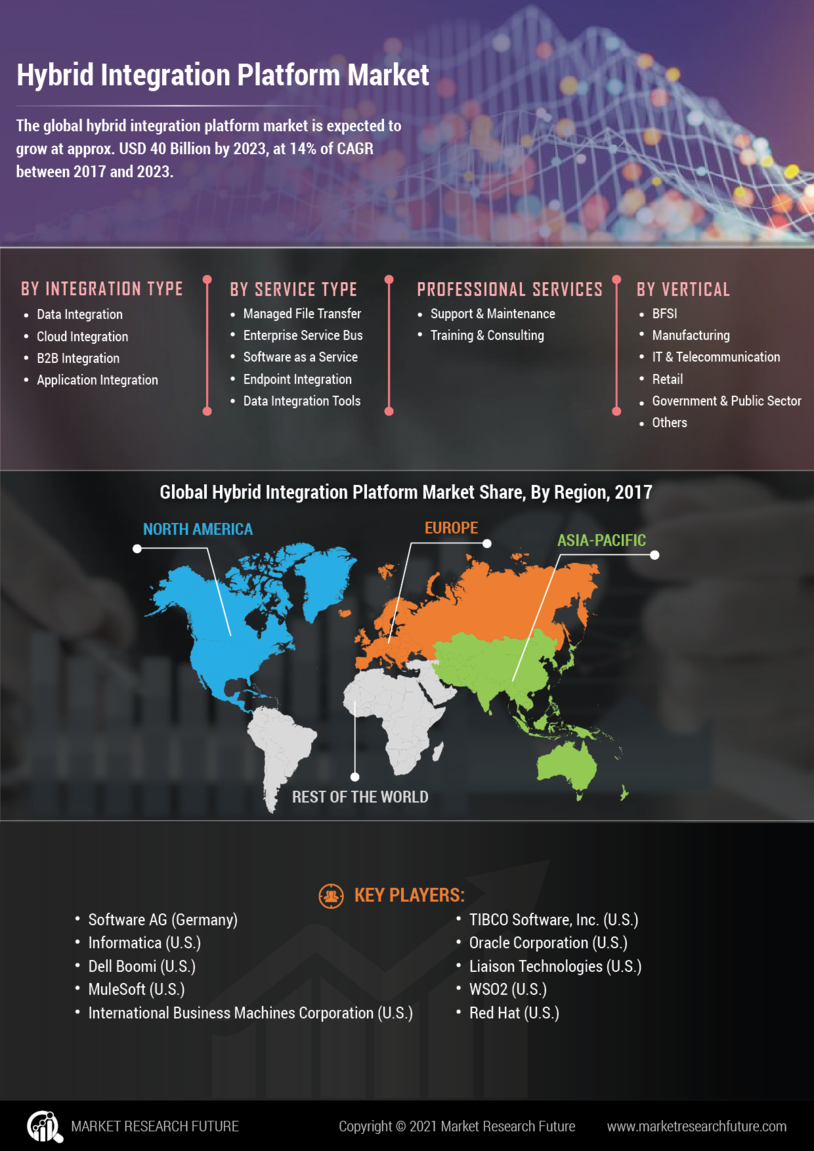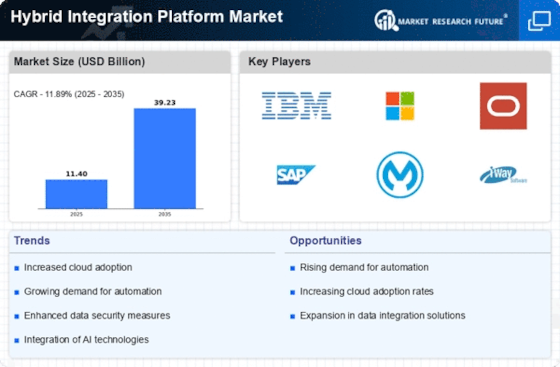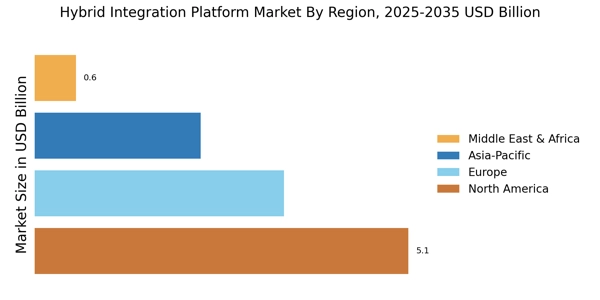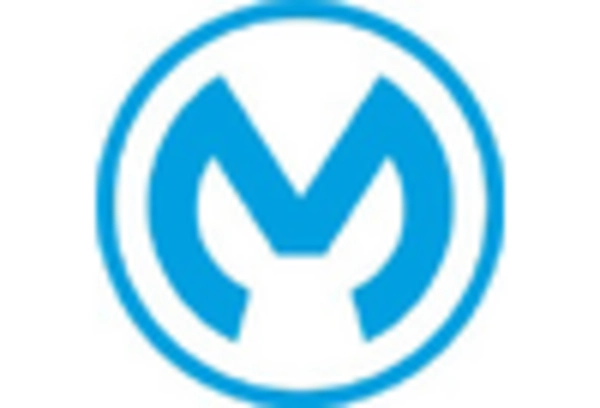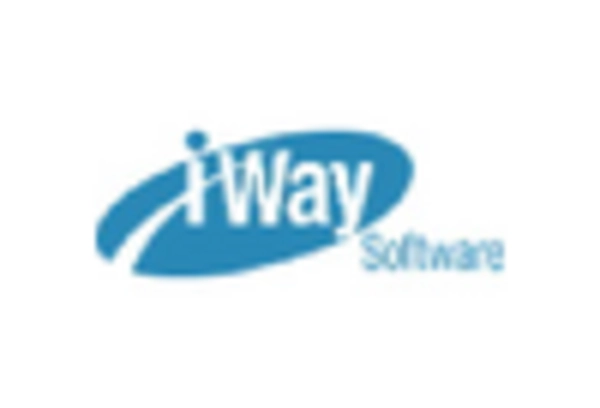Adoption of Advanced Technologies
The Hybrid Integration Platform Market is being propelled by the adoption of advanced technologies such as artificial intelligence, machine learning, and the Internet of Things. These technologies require robust integration capabilities to function effectively, as they often involve multiple systems and data sources. Hybrid integration platforms provide the necessary infrastructure to support these technologies, enabling organizations to leverage their full potential. Recent reports suggest that the integration of AI and IoT with hybrid platforms can lead to operational efficiencies and innovative service offerings. As businesses increasingly recognize the benefits of these advanced technologies, the demand for hybrid integration solutions is expected to rise, further driving market growth. This trend highlights the critical role that hybrid integration platforms play in facilitating technological advancements.
Rise of Data-Driven Decision Making
In the current landscape, the Hybrid Integration Platform Market is witnessing a notable shift towards data-driven decision making. Organizations are increasingly recognizing the value of data analytics in informing strategic choices and enhancing operational performance. The integration of various data sources through hybrid platforms allows businesses to gain comprehensive insights, thereby improving their decision-making processes. Recent statistics indicate that companies leveraging data analytics are five times more likely to make faster decisions than their competitors. This trend underscores the importance of hybrid integration platforms in consolidating data from multiple sources, enabling organizations to harness the full potential of their data assets. Consequently, the demand for hybrid integration solutions is expected to rise as businesses strive to become more agile and responsive to market dynamics.
Regulatory Compliance and Data Security
The Hybrid Integration Platform Market is also shaped by the increasing emphasis on regulatory compliance and data security. As organizations navigate a complex landscape of regulations, such as GDPR and CCPA, the need for secure and compliant data integration solutions becomes paramount. Hybrid integration platforms offer features that enhance data security and ensure compliance with various regulations, thereby mitigating risks associated with data breaches. Recent findings indicate that companies investing in compliance solutions are better positioned to avoid costly penalties and reputational damage. This growing awareness of the importance of data security is likely to drive the adoption of hybrid integration platforms, as organizations seek to protect sensitive information while maintaining operational efficiency. Consequently, the market is expected to expand as businesses prioritize secure integration solutions.
Increased Demand for Digital Transformation
The Hybrid Integration Platform Market is experiencing a surge in demand driven by the ongoing digital transformation initiatives across various sectors. Organizations are increasingly seeking to modernize their IT infrastructure to enhance operational efficiency and customer engagement. According to recent data, nearly 70% of enterprises are prioritizing digital transformation, which necessitates the integration of disparate systems and applications. This trend is compelling businesses to adopt hybrid integration platforms that facilitate seamless connectivity and data flow. As a result, the market is projected to grow significantly, with estimates suggesting a compound annual growth rate of over 20% in the coming years. This growth reflects the critical role that hybrid integration platforms play in enabling organizations to adapt to rapidly changing market conditions.
Growing Need for Enhanced Customer Experiences
The Hybrid Integration Platform Market is significantly influenced by the growing need for enhanced customer experiences. As consumer expectations evolve, businesses are compelled to deliver personalized and seamless interactions across various channels. Hybrid integration platforms facilitate this by enabling organizations to connect customer data from multiple touchpoints, thereby creating a unified view of the customer journey. Recent surveys indicate that 80% of consumers are more likely to engage with brands that provide personalized experiences. This trend is driving organizations to invest in hybrid integration solutions that can streamline data access and improve customer engagement strategies. As a result, the market is poised for substantial growth, with projections indicating a potential increase in adoption rates as companies prioritize customer-centric approaches.
